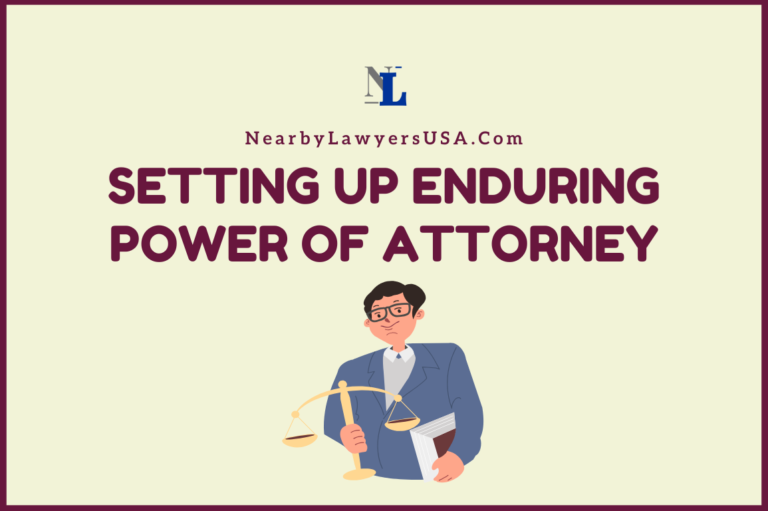Structuring an effective approach to preserving and eventually transferring valuable assets after death requires expertise to implement protections, minimize tax implications, and avoid disputes.
Soliciting an experienced estate planning attorney is a sensible step for families and individuals looking to strongly modify real estate, investment accounts, business holdings, and other assets for future generations.

The Role of an Estate Attorney
Estate attorneys focus specifically on facilitating asset preservation while transferring management oversight and eventual ownership of properties to designated beneficiaries.
Their core responsibilities include:
- Drafting Legal Documents: Creating wills, trusts, and other instruments that outline legacy intentions.
- Asset Protection: Recommending structures that help retain control and protection of assets during life.
- Tax Minimization: Advising on strategies to reduce capital gains and inheritance tax liabilities.
- Estate Administration: Guiding executors to avoid common mistakes in managing the estate.
- Trustee Services: Serving as trustee or executor to ensure the smooth execution of the estate according to the client’s wishes.
Unlike general practice attorneys, estate lawyers concentrate exclusively on wealth structuring and legal documentation necessary for successful generational transitions.
Special Considerations for Commercial Real Estate
When estates include substantial commercial real estate holdings or actively managed investment portfolios, complexities magnify significantly.
Specialized counsel can provide:
- Entity Structuring: Balancing tax minimization with flexibility and control.
- Business Ownership Dynamics: Addressing unique considerations related to business holdings.
- Asset Valuation: Establishing clear methods for determining asset value.
- Litigation Prevention: Crafting documents that minimize the risk of disputes among joint inheritors.
- Buyout Arrangements: Offering guidance on funding buyout arrangements or inheritance payout terms.
Attorneys well-versed in these intricate matters help optimize plans that balance family harmony, tax savings, and timely transitions.
How to Find Nearby Estate Planning Attorneys?
Finding a qualified estate attorney requires diligent research, including:
- Online Directories: Utilize state bar associations’ listings of lawyers searchable by location and specialty.
- Local Referrals: Ask CPAs, financial advisors, and tax accountants for trusted referrals to estate lawyers who serve high-net-worth individuals.
- Law Firm Focus: Look for firms that specialize in asset preservation, estate taxation, and probate law for niche expertise.
- Experience: Seek attorneys with at least 10 years of experience focused on intergenerational wealth transfers.
Criteria for Choosing the Right Estate Attorney
Selecting the right estate attorney goes beyond verifying experience. Consider the following criteria:
- Communication Style: The attorney should encourage questions, explain complex concepts in understandable terms, and keep you informed about progress.
- Customization: Ensure prospective lawyers can tailor their recommendations to your unique family circumstances rather than providing generic documents.
- Tax and Probate Expertise: They should demonstrate a solid understanding of reducing estate taxes and navigating state probate laws.
- Trust and Rapport: Trust your instincts about their dedication to your family’s interests, especially when discussing sensitive topics.
Working With Your Estate Attorney for Optimal Results
Once you’ve selected an estate planning attorney, effective collaboration over the long term is crucial.
Here are some strategies:
- Proactively Articulate Goals: Clearly communicate your legacy priorities and how you envision asset distribution after your death.
- Ask Clarifying Questions: Request real-world examples to better understand legal terminology and the implications of various estate planning tools.
- Voice Ongoing Adjustments: Keep your attorney informed about any significant changes in goals, family dynamics, or tax laws that may impact your estate plan.
- Alignment Checks: Before finalizing any changes, ensure that they align with your original legacy objectives and risk tolerance.
By maintaining open lines of communication, you can foster a lasting attorney-client relationship that effectively supports your estate planning needs.
Securely Transferring Your Assets
Implementing prudent planning strategies for secure asset preservation and transfer requires guidance from knowledgeable professionals.
Collaborating with estate attorneys through a thoughtful selection process leads to long-term partnerships, allowing you to uphold your legacy well after you are gone.
Rather than leaving asset distribution to chance, engage dedicated specialists who will protect the hard-earned fruits of past generations while empowering future inheritors.





